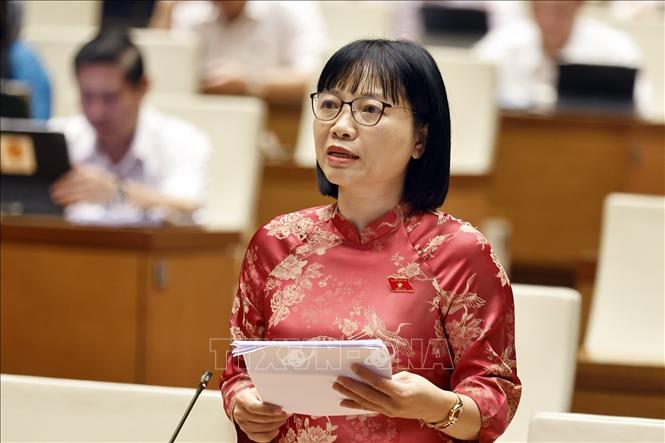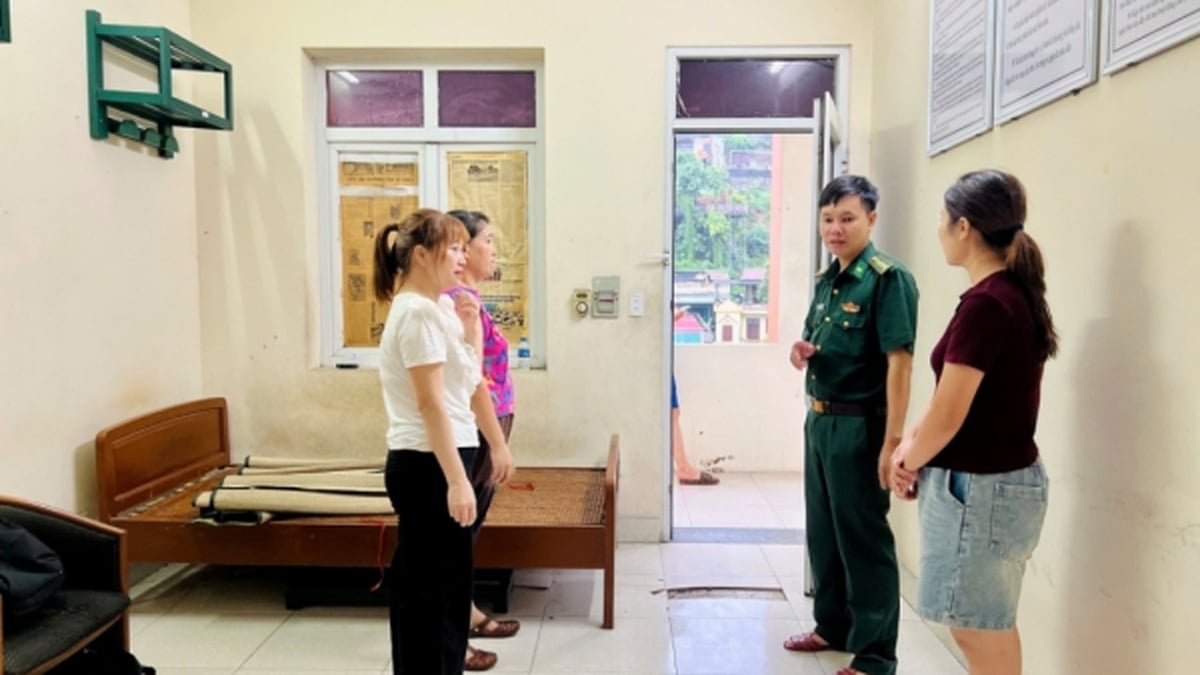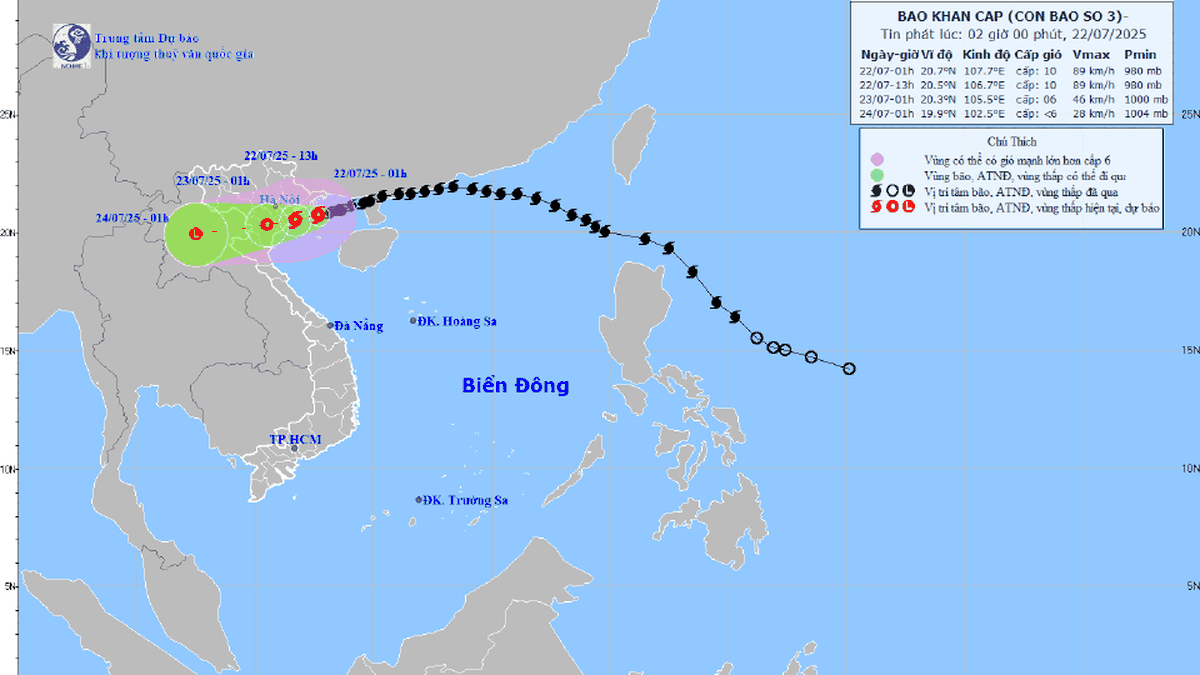The draft Law on Science , Technology and Innovation consists of 8 chapters and 83 articles (2 articles more than the 2013 Law on Science and Technology). Due to the addition of innovation content and restructuring of the Law, there are many changes in form compared to the current law.
Contributing opinions to the draft Law on Science, Technology and Innovation, delegate Tran Thi Nhi Ha, Vice Chairwoman of the People's Petition and Supervision Committee, said that it is necessary to stipulate that at least 20% of the annual science and technology budget of ministries, branches and localities must be spent on ordering domestic science and technology products. Clearly stipulating a mandatory rate will create motivation and pressure for implementation, instead of just encouraging voluntary activities as at present. At the same time, it is necessary to add to Article 6 of the draft Decree specific regulations on financial plans for ordering activities in the direction of spending to simplify procedures and increase initiative for the host organization. Along with that are policies to support output, transfer and commercialization of research products.
National Assembly delegate of Hai Duong province Nguyen Thi Viet Nga speaks. Photo: Doan Tan/VNA
Regarding the Science and Technology Development Fund of Enterprises (Article 65), delegate Tran Thi Nhi Ha proposed allowing a maximum deduction of 15% of taxable income. Particularly for enterprises operating in the fields of high technology, digital technology , strategic technology such as chips, AI, big data, the maximum level is 20% to create enough room for investment in research and innovation.
In addition, it is necessary to expand the list of expenditures from the fund such as salaries for research and development personnel, hiring experts, purchasing materials and components for testing, testing sample products, attending specialized seminars, testing, purchasing equipment, machinery and technological products directly serving research activities. The Ministry of Science and Technology is assigned to issue a specific list and non-mandatory regulations on establishing topics and tasks for each expenditure item to facilitate businesses to use the fund according to actual needs, serving innovation activities.
Regarding the Enterprise Science and Technology Development Fund (Article 65), Delegate Sung A Lenh, Deputy Head of the Lao Cai Province Delegation of National Assembly Deputies, said that the draft Law stipulates: "Enterprises are allowed to deduct up to 5% of their taxable income to establish the Enterprise Science and Technology Development Fund" (Clause 1, Article 65). However, this content is not completely consistent with the spirit of Resolution No. 68-NQ/TW on developing the private economy into an important driving force of the economy. Accordingly, the Resolution allows enterprises to deduct up to 20% of their taxable income to establish a fund for science, technology, innovation, digital transformation and research and development.
According to delegate Sung A Lenh, the important point is that Resolution 68 also expands the scope of fund use, allowing enterprises to not only carry out internal research and development activities, but also to order external research according to the product contracting mechanism, a flexible approach, in line with the current trend of open innovation. Therefore, delegate Sung A Lenh suggested that the agency in charge of drafting the study consider adjusting the fund allocation rate from 5% to a higher level. Raising the fund allocation rate not only helps enterprises have more resources to invest systematically and long-term in science, technology and innovation, but also contributes to realizing the goal of developing strong, sustainable private enterprises with regional and global competitiveness.
Referring to the content of venture capital and the startup ecosystem, Delegate Thach Phuoc Binh, Deputy Head of the National Assembly Delegation of Tra Vinh province, said that a positive point in the draft Law is that for the first time, two important contents have been legalized: the National Venture Capital Fund (Article 38) and the Innovative Startup Capital Exchange (Article 39). These are institutional mechanisms that can create a significant boost for the innovative startup ecosystem, if designed and implemented effectively.
However, according to Delegate Thach Phuoc Binh, due to the characteristics of the venture capital market being “high risk – high expectation”; at the same time, it is possible to use State budget capital, so the Draft needs to stipulate more clearly the mechanisms for monitoring, preventing financial risks and ensuring market transparency.
The Law on Science, Technology and Innovation is considered the lifeblood that unblocks all resources, connects all sectors to promote science, technology and innovation activities to become a new driving force in economic and social growth and breakthrough development. Therefore, the drafting agency needs to continue research to promptly and thoroughly institutionalize the spirit of Resolution 45, Resolution 57 and Resolution 68 just issued by the Politburo.
Regarding the above content, delegate Nguyen Thi Viet Nga, Deputy Head of the National Assembly Delegation of Hai Duong province, found that the draft Law lacks comprehensiveness in designing criteria for identifying talents. Current criteria such as patents, awards, startups, etc. are suitable for natural sciences and technology, but do not reflect the characteristics of social sciences and humanities. Even the criterion of having articles published in prestigious international scientific journals is not completely suitable for many social sciences and humanities.
Delegate Nguyen Thi Viet Nga suggested that the Drafting Committee add specific criteria for each group of sectors, with social sciences and humanities being research works applied in policy making, education or research works widely used domestically and internationally. Ensure fairness, transparency and honor those who have made academic and policy contributions in all three areas: natural sciences, engineering and technology, and social sciences and humanities. With a stratified approach - role assignment - close coordination, along with a mechanism to encourage innovation and fair assessment, the draft Law on Science, Technology and Innovation will become a driving force to promote the national innovation ecosystem to develop strongly and sustainably.
With the contributions and proposals of the National Assembly Deputies, Minister of Science and Technology Nguyen Manh Hung highly appreciated the enthusiastic contributions of the National Assembly Deputies; at the same time, he affirmed that the Ministry will closely coordinate with the National Assembly's Committee on Science, Technology and Environment to study, review, absorb and complete the draft Law to ensure that the Law on Science, Technology and Innovation is practical, feasible and consistent with the current legal system and related laws. will be passed by the National Assembly at this 9th session.
According to News and People Newspaper
Source: https://doanhnghiepvn.vn/tin-tuc/xac-dinh-ty-le-trich-lap-vao-quy-phat-trien-khoa-hoc-va-cong-nghe/20250514072009368























![[Photo] National Assembly Chairman Tran Thanh Man visits Vietnamese Heroic Mother Ta Thi Tran](https://vphoto.vietnam.vn/thumb/1200x675/vietnam/resource/IMAGE/2025/7/20/765c0bd057dd44ad83ab89fe0255b783)















































































Comment (0)